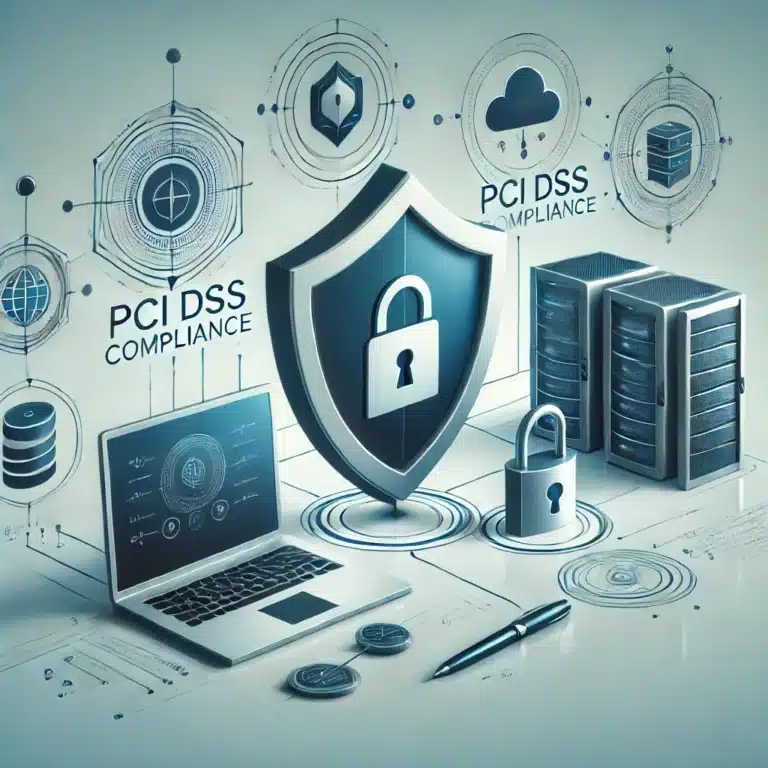In the ever-evolving landscape of cybersecurity, selecting the right Qualified Security Assessor (QSA) is a crucial decision for businesses aiming to achieve and maintain PCI DSS compliance. A QSA not only helps organizations navigate the complexities of safeguarding payment card data but also plays a key role in shaping your long-term security posture.
However, choosing the right QSA goes beyond technical expertise—it’s about finding a partner who understands your business, communicates effectively, and works with you toward shared compliance goals. In this article, we’ll explore the essential factors to consider when choosing your next QSA, ensuring your organization is equipped for both compliance and cybersecurity success.
1. Industry-Specific Expertise
Not all QSAs are created equal, and industry experience can make a significant difference. Your business likely operates within a specific payment environment, and the unique challenges of your sector will dictate how your QSA approaches PCI DSS compliance. When choosing a QSA, consider their track record in your industry. Have they worked with businesses similar to yours? Do they understand the common pain points of your payment processing environment?
For instance, a retail business with complex e-commerce payment flows will benefit from a QSA experienced in online payment security. A healthcare provider handling sensitive patient information, on the other hand, may require a QSA who is well-versed in data privacy regulations alongside PCI compliance.
By selecting a QSA with relevant industry knowledge, you ensure a tailored, effective approach to compliance.
2. Comprehensive Service Offerings Beyond PCI DSS
While the primary role of a QSA is to assess your organization against the PCI DSS requirements, the best QSAs offer much more than just compliance audits. Look for a QSA that provides a range of additional services such as:
- Vulnerability Assessments
- Penetration Testing
- Ongoing Security Consulting
- Incident Response Planning
Choosing a QSA with a holistic view of cybersecurity ensures that you’re not just meeting the minimum compliance requirements, but also improving your overall security posture. This approach helps you stay resilient in the face of emerging threats and regulatory changes, providing peace of mind that your organization is truly secure, not just compliant.
3. Strong Communication and Relationship Building
Effective communication is a cornerstone of any successful relationship, and your partnership with a QSA is no different. PCI DSS compliance is a complex process that requires clarity at every step. A strong QSA should be able to distill technical jargon into clear, actionable advice that your team can understand and implement.
But it’s not just about clarity. Proactive communication is key to staying ahead of issues. Your QSA should keep you informed of progress, regulatory changes, and potential risks that may arise during the compliance process.
Building a relationship with your QSA based on open dialogue and trust can lead to more efficient assessments and fewer compliance hurdles. A QSA who understands your business goals and communicates effectively will provide greater long-term value, helping your organization maintain compliance while continually improving its security posture.
4. The Importance of Client References and Testimonials
One of the most reliable ways to gauge the effectiveness of a QSA is through client references and testimonials. Positive feedback from other businesses can offer valuable insights into the QSA’s approach, professionalism, and ability to meet deadlines.
When reviewing potential QSAs, don’t hesitate to ask for references. Speaking directly with past or current clients can provide a more realistic picture of what working with the QSA is like. Ask specific questions such as:
- Did the QSA provide clear guidance throughout the process?
- How did they handle unexpected challenges or roadblocks?
- Were they proactive in addressing concerns, or did you have to chase them for updates?
Good QSAs will have a portfolio of satisfied clients and be eager to showcase their success stories.
5. Alignment with Your Business Goals and Values
Compliance should not be treated as a checkbox exercise. The right QSA will recognize that PCI DSS compliance is part of your overall business strategy and help you leverage compliance efforts to improve your security posture.
When assessing QSAs, consider how their approach aligns with your business objectives. Do they understand the broader impact of compliance on your organization’s operations? Are they committed to helping you achieve long-term security rather than just ticking boxes for an audit?
A good QSA will not only meet your immediate compliance needs but also help you implement best practices that support your business’s growth, innovation, and resilience against cyber threats.
6. Flexibility and Customization in Service Delivery
Every business has unique needs when it comes to PCI DSS compliance, and a one-size-fits-all approach won’t cut it. A high-quality QSA will offer flexibility in how they deliver their services, tailoring their assessments and recommendations to your specific environment.
Whether it’s scheduling around your busiest periods or offering custom reporting that aligns with your internal processes, the right QSA should work with you to ensure that compliance does not become a burden to your day-to-day operations.
7. Long-Term Partnership for Ongoing Compliance and Security
PCI DSS compliance is an ongoing process, not a one-time event. As your business evolves, so do the threats you face and the regulatory requirements you must meet. Establishing a long-term partnership with your QSA can provide continuous support as you navigate these changes.
A QSA who is committed to working with you over the long term can help you:
- Stay up to date with PCI DSS version changes.
- Regularly assess and improve your security measures.
- Address compliance gaps before they become serious issues.
- Proactively address new security risks and challenges.
By fostering a long-term relationship with your QSA, you create a foundation for continuous improvement, ensuring that your compliance program remains effective and aligned with the latest industry standards.
Conclusion: The Value of Choosing the Right QSA
Selecting the right QSA is a critical decision that goes beyond achieving compliance. It’s about finding a partner who can guide you through the complexities of PCI DSS while helping you build a strong security foundation.
To make the best choice, focus on a QSA’s industry expertise, comprehensive service offerings, communication skills, client references, and alignment with your business goals. Don’t forget the importance of flexibility and long-term partnership—your QSA should be a strategic ally in maintaining compliance and improving cybersecurity over time.
In the end, nurturing a productive relationship with your QSA will ensure clarity, trust, and effectiveness in your compliance journey, ultimately contributing to the overall security and success of your organization.




